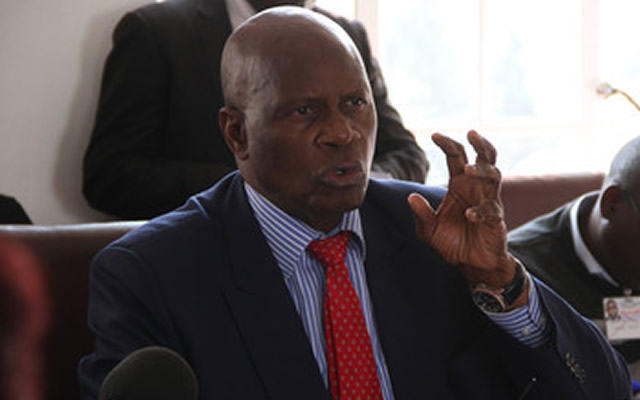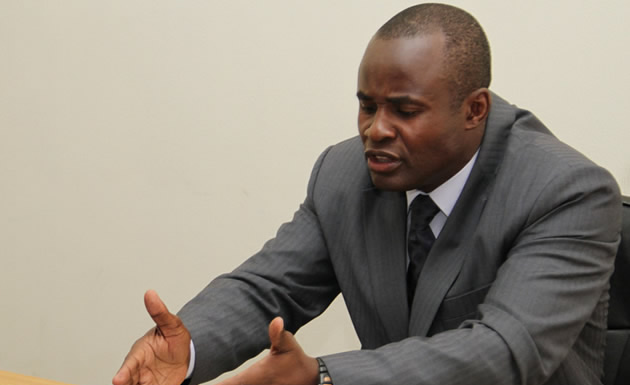Bonus suspension gets thumbs up

Felex Share Senior Reporter—
economists and analysts say the scrapping of civil servants’ bonuses for the next two years is a painful, but necessary decision that will eventually lead to full national economic recovery. They, however, said to show its seriousness, the Government must also undo some of the perks being enjoyed by top officials, including ministers.
These benefits, the analysts said, include imported luxury vehicles which should be replaced with locally-assembled ones in line with Cabinet circular number 16 of 2011 which called on ministries, state enterprises and public bodies to secure 80 percent of their fleet requirements from local assemblers.
Finance and Economic Development Minister Patrick Chinamasa on Monday said Government would not pay bonuses this year and next year to create fiscal space to finance Zim-Asset.
Confederation of Zimbabwe Industries president Mr Charles Msipa described the move as a “good essential starting point.”
“There is no way in the face of declining revenue that Government can continue to maintain or increase expenditure,” he said.
“It has to balance its books and it might appear bold, but it is a right call in the circumstances. It underscores the urgent need for everyone in the public and private sector to redouble our efforts to restore economic growth.”
In his address, Minister Chinamasa said there was no way the country’s economy would have a smooth turnaround without taking daring and painful decisions.
He said some of the companies that were performing well had undergone the harsh process of liquidation or judicial management.
Employers Confederation of Zimbabwe president Mr Jack Murehwa, said Government had taken a “rational business decision.”
“If the bonuses were to be paid, then Government would have to borrow the additional cash or raise additional taxes and levies in an environment where business and individuals are already seriously taxed,” he said.
“The majority of the private sector, in addition to struggling to pay salaries on time, have long stopped paying bonuses because it has just been impossible to raise the additional cash for bonuses.”
Econometer Global Capital head of research Mr Christopher Mugaga, said to grow an economy harsh steps are needed.
He said the Government move should be followed by robust policies that support local products.
“We are on the right track because I do not know of any economy that is struggling that pays the 13th cheque,” he said.
“We cannot afford it at the moment and we have to forgo the bonuses. Government should even consider lengthening the Government salaries calendar. Our Government is too big meaning the civil servant per economically active individual is too high and the skills audit being done comes in handy. If we achieve this we will go far as a nation.”
Another economist, Mr Joseph Sagwati, said it was illogical for Government to continue paying bonuses when its revenue base was shrinking.
“Government is looking for money and needs to curtail exorbitant expenditure,” he said.
“It is also high time they undo certain perks that are unnecessarily costing Government. Government might face some resistance but it is not a problem because what is needed is continuity and Government functionality.”
The Government monthly wage bill currently stands at $260 million while last year the bonus obligations were $172,6 million of which $13,4 million is still to be paid to State Universities.
Harare based economist Mr Witness Chinyama said the bonus move would have a positive impact: “The budget structure is all about the recurrent expenditure and it means what is needed are policies to cut the outflow.
“The problem is most of Government expenditures are not discretionary but are legally binding. The bonus removal will have an impact in terms of increasing revenue but more corrective measures are needed.”
ZCTU secretary general Mr Japhet Moyo, said there was no doubt Government was facing challenges, but it should consult the affected constituency before making decisions.
“We acknowledge the revenue base has shrunk, people are going into the informal sector because companies are closing and this means less tax to Government.
“We fear the private sector will copy what Government is doing but to show their seriousness they should forgo these luxurious cars and purchase vehicles locally. If they do not do that then it means we are going nowhere.”
Government has ordered all line ministries, public institutions and parastatals to buy at least 80 percent of their vehicles from local car assemblers to support the local industry.











Comments